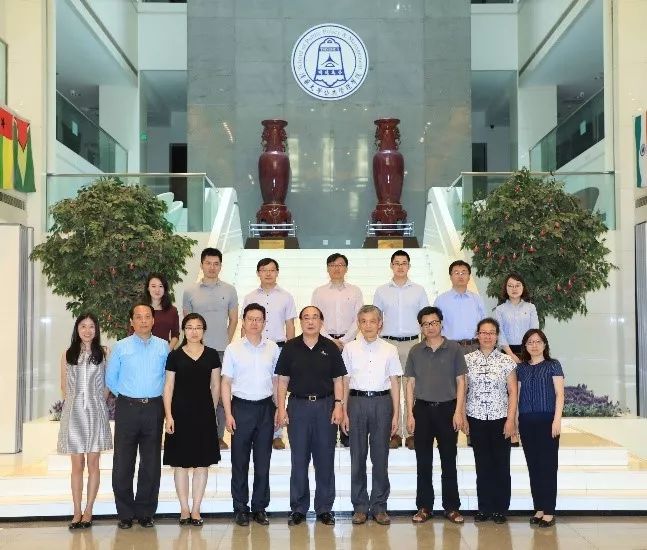
On the morning of 23 August, the Multi-party Seminar on the Implementation of the United Nations Sustainable Development Goals (SDGs), hosted by the Institute for Sustainable Development Goals, Tsinghua (Tsinghua SDG Institute), was held at the School of Public Policy & Management of Tsinghua University (SPPM).
Xue Lan, Dean of SPPM and Co-Director of Tsinghua SDG Institute, presided over the opening ceremony, while Wu Hongbo, Deputy Secretary-General of the United Nations, Adjunct Professor of Tsinghua University, and Co-Director of Tsinghua SDG Institute, delivered opening remarks. Huang Yiyang, Deputy Director-General of the Department of International Economics Affairs, Ministry of Foreign Affairs of the People's Republic of China(MFA); Wang Huiyao, Counselor to China State Council and President of Center for China and Globalization (CCG); Ba Yunhong, Director of Indicator System Research and Design Division of Department of Statistics Design and Management,National Bureau of Statistics of China; Xiang Wei, Director of Department of Development Planning, The National Development and Reform Commission; Zhou Hailin, Director-General of the Administrative Center for China's Agenda 21, Ministry of Science and Technology of China; Chen Ying, Deputy Director of Centre for Sustainable Development, Chinese Academy of Social Sciences; Chen Guotang,Deputy Secretary General of China Development Research Foundation(CDRF); Jiang Xiheng, Deputy Director of Center for International Knowledge on Development; Xu Jingqiu, Deputy Director of Child Development Centre of CDRF of the State Council (SDC); Zhuang Youyi, Third Secretary of the Department of International Economics Affairs of MFA; Zhu Xufeng, Associate Dean of School of Public Policy & Management, Tsinghua University (SPPM) and Executive Director of Tsinghua SDG Institute; Yang Yongheng, Associate Dean of SPPM; Pan Jie, Professor of SPPM; Zhou Shaojie, Associate Professor of SPPM; Gao Yuning, Associate Professor of SPPM; Zhu Junming, Associate Professor of SPPM attended the seminar.
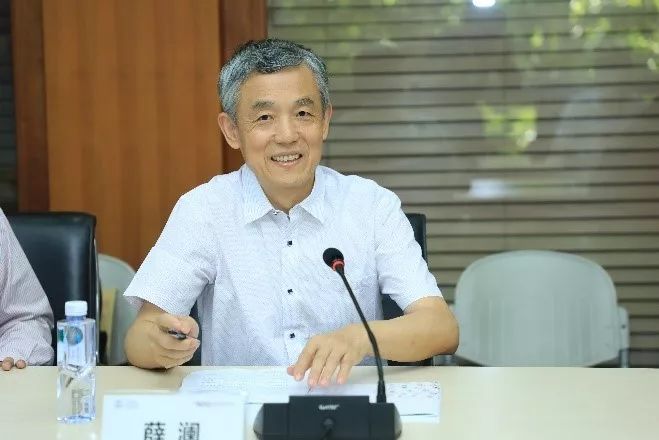
(Xue Lan hosted the Seminar)
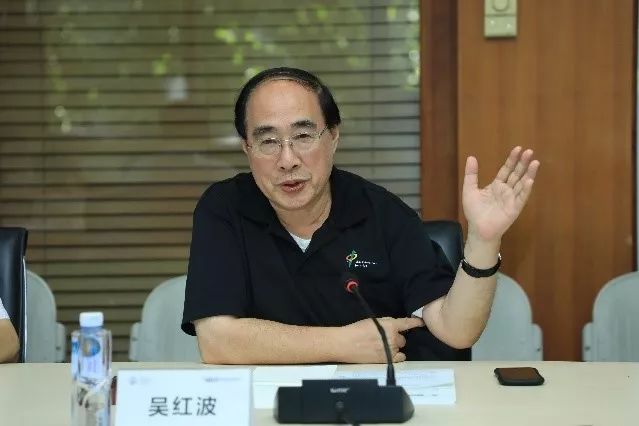
(Wu Hongbo delivered opening speech)
Xue Lan hosted the event and welcomed the experts to the conference. He briefly outlined the background of the conference and stressed the importance for all domestic departments and research institutes to work together to implement the United Nations Sustainable Development Goals (SDGs). Wu Hongbo delivered an opening speech, saying that the purpose of this conference is to build a platform for communication and exchanges between the government, universities, think tanks and research institutes, and hope that by optimising the communication mechanism, we can better "tell China's story" in the future. At the same time, he emphasised the importance of strengthening the coordination of domestic government departments, better integrating SDGs with national policies, enhancing public awareness and implementation of SDGs through advanced technology and education, strictly controlling the standards, sources and algorithms of data to improve the reliability and accuracy of the data, and strengthening the tracking and review of the implementation process of the SDGs are the key points of the work in the future.
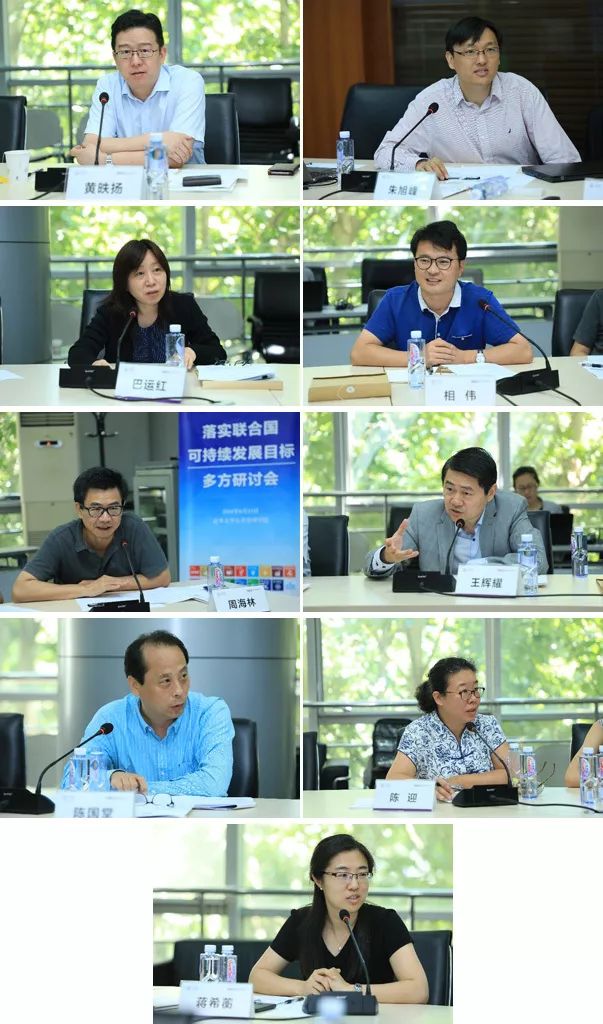
(Guest Speakers)
Huang Yiyang firstly introduced the responsibilities, framework and future work plan of the Department of International Economics Affairs of the Ministry of Foreign Affairs of China, which is the general department in charge of the SDGs work in China. He said that SDGs are highly consistent with the connotation of "A Global Community of Shared Future" and "the Belt and Road" Initiatives. China's great achievements in poverty alleviation in recent years not only prove to the world China's ability and determination to implement SDGs, but also share experience with other countries and regions to achieve global development.
Zhu Xufeng briefly introduced the background and development of the Tsinghua SDG Institute, Tsinghua-Geneva Cooperation and the SDG Dual Degree Programme (MPP-SDG), the academic research and achievements of the Institute as well as exchanges and activities.
Ba Yunhong mentioned that National Bureau of Statistics attaches great importance to the SDGs and has set up a steering working group within the NSO to carry out related work, while establishing a trust fund with the United Nations to organise international conferences, international training and other activities. In addition, she also pointed out that the big data gap is the biggest challenge in the current work, and hoped that in the future, the mechanism of data collection, review and reporting would be clarified, and localised research on SDGs indicators would be carried out.
Xiang Wei briefly introduced the future work plan of Department of Development Planning of the National Development and Reform Commission and analysed the differences between SDGs indicators from the perspective of domestic development. He pointed out that the Department of Development Planning would compare with internationally renowned indicator systems in setting up the domestic indicator system, and would actively refer to the SDGs system in the design of the indicator system of the subsequent 14th Five-Year Plan, so as to make it comparable and selectable.
Zhou Hailin introduced China's National Plan on Implementation of the 2023 Agenda - Plan for Demonstration Zone Construction, he also talked about the Green Technology Bank and recent SDGs works carried out by the Ministry of Science and Technology of China, and pointed out that in the future, the focus should be on proposing targeted, practical and replicable solutions and technology routes.
Wang Huiyao analysed the linkages between migration and the SDGs on poverty and hunger, old age, health and education from the perspectives of international migration and domestic population movement. In addition, he emphasised the need to safeguard and promote international and domestic population mobility at the policy level in the future, so as to promote the sustainable development of China.
Based on the aspect of child development, Chen Guotang introduced the implementation plan and results of poverty alleviation projects carried out by CDRF and said that in the future, CDRF will continue to strengthen the international promotion of poverty alleviation experience.
Chen Ying briefly introduced the development of Centre for Sustainable Development, Chinese Academy of Social Sciences from its early commitment to academic research in the areas of climate change and sustainable development to its current position of having academic achievements covering a wide range of areas in the SDGs, and expressed the hope of joining hands with various organisations to strengthen cooperation in the areas of climate change and environment protection, and demonstration zones for sustainable development.
Jiang Xihang briefly described the working mechanism of Center for International Knowledge on Development - cooperating with MFA in preparing the SDGs country progress reports, working closely with international partners, and working better in the areas of poverty reduction, child development, and work related to the "The Belt and Road", spreading China's voice and telling China's story.
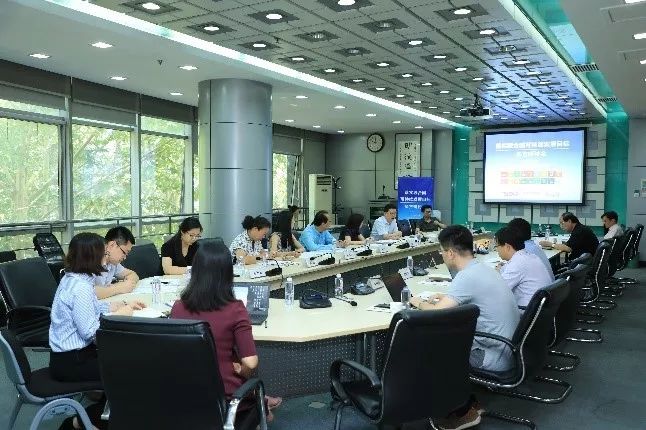
(seminar site)
In his conclusion, Wu Hongbo reiterated the need to combine the sharing of Chinese experience with international ideas in the future. In addition, he hoped that the Tsinghua SDG Institute, as a leader in the field of SDGs research in China, would learn from the joint departmental coordination mechanism carried out by governmental departments, and establish a linkage mechanism between think tanks and research departments at an early date. In his conclusion, Huang Yiyang also mentioned that this meeting provided a very good platform and opportunity for the Tsinghua SDG Institute, and hoped that in the future, not only should we strengthen the connection between the government, universities and think tanks, but also pay attention to the future direction of the international situation in development issues, so as to jointly promote the implementation of SDGs in China.
The sharing and discussion of the experts in this multi-party seminar have clarified the direction and laid the foundation for the future all-round co-operation and exchanges in the field of sustainable development between the government, universities and think-tanks and research institutes.

